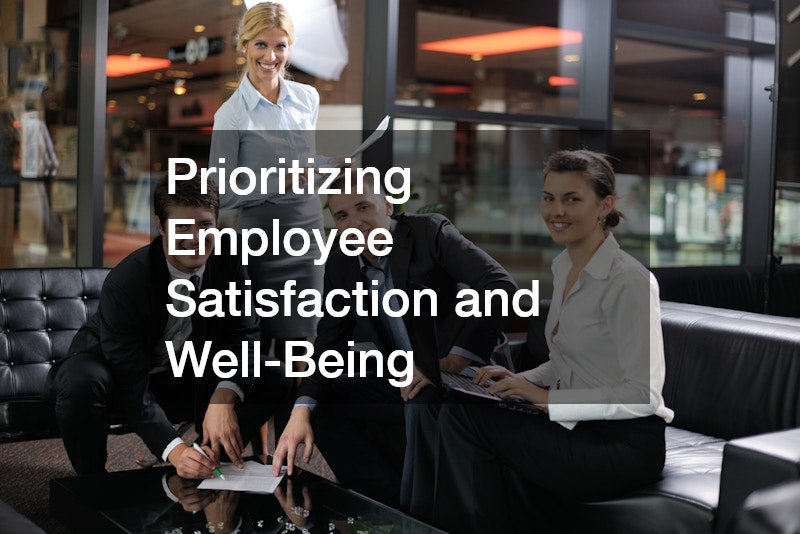In today’s competitive marketplace, a business’s public reputation can be the deciding factor in its success or failure. With the rise of digital media and platforms for consumer reviews, how a company is perceived is more important than ever. A positive public reputation builds trust, fosters customer loyalty, and helps attract new business, while a poor one can quickly turn potential customers away. Companies now have a wealth of tools and opportunities to shape their image in the public eye, but managing a reputation takes constant attention and proactive measures. It’s not just about avoiding scandals or negative publicity; it’s about creating a consistent, positive image that resonates with clients, partners, and the wider community. To ensure a good public reputation, businesses need to focus on transparency, responsiveness, and the quality of interactions with customers and employees alike.
A good public reputation starts with the basics: honesty and integrity. Businesses that are transparent about their operations, pricing, and practices are more likely to gain and retain customers’ trust. When customers feel confident that they are receiving honest and reliable service, they are more likely to return and recommend the business to others. The approach extends beyond customer service; it includes everything from handling mistakes openly to setting realistic expectations. For any business looking to enhance its public reputation, maintaining open communication and consistently acting with integrity are key steps that build lasting trust and credibility.
Building Trust Through Transparency and Honesty

At the core of any strong public reputation is the practice of transparency and honesty in all business operations. This means being open about policies, pricing, and any potential issues that may arise. When businesses communicate openly and don’t attempt to mislead customers, it creates a foundation of trust that encourages loyalty and positive word-of-mouth. Building this level of trust takes time, but it’s essential for a solid reputation. By maintaining transparency, companies show they have nothing to hide and are willing to address any concerns directly, which resonates well with both new and existing customers. Transparency also extends to how a business treats its employees, suppliers, and community partners, as customers are increasingly concerned about ethical practices and social responsibility.
For a local golf cart dealership, trust is especially important as customers often need guidance and assurance regarding a product that might be unfamiliar to them. By providing clear information about each model, its features, and its pricing, a dealership can ease customer concerns and foster a positive experience. If the dealership communicates openly about warranties, maintenance expectations, and product limitations, customers will appreciate the honesty and are more likely to feel confident in their purchase. This transparency contributes to a positive public reputation, as it reassures customers that the dealership is committed to delivering reliable products and excellent service without hidden catches.
Fostering Positive Customer Relationships
Creating positive relationships with customers is crucial to maintaining a good public reputation. A company that shows appreciation and care for its customers is often viewed as more trustworthy and dependable. Positive customer relationships start with small gestures, such as friendly communication, prompt responses, and genuine interest in customer satisfaction. These interactions build a lasting connection, making customers feel valued rather than just another transaction. By prioritizing relationships over profits, businesses show a commitment to their customers’ needs and interests, which encourages loyalty and long-term brand advocacy. When customers feel genuinely cared for, they are more likely to spread positive reviews and recommendations, reinforcing the business’s public reputation.
For a fencing company, building strong customer relationships can be particularly impactful. Fencing projects are often significant investments, and customers want to feel confident in both the quality of materials and the craftsmanship. By taking the time to understand each client’s specific needs, preferences, and budget, the company can offer tailored solutions and support throughout the process. If the fencing company stays in touch after installation to ensure satisfaction and address any issues, it shows customers that they are more than just clients—they are valued partners. Such attention to detail and care can substantially enhance the company’s public reputation, turning satisfied customers into advocates who will recommend the service to others.
Managing Negative Feedback Effectively
No business is immune to negative feedback, but how a company manages it can significantly impact its public reputation. Addressing negative feedback promptly and professionally is essential, as unresolved issues can quickly snowball on public forums and social media. Rather than ignoring or deleting critical comments, a transparent business seeks to understand the customer’s concerns, takes responsibility, and offers solutions. This proactive approach not only prevents escalation but also shows the public that the company cares about its customers’ experiences. By treating negative feedback as an opportunity for improvement rather than a threat, businesses can demonstrate their commitment to customer satisfaction and strengthen their reputation.
For a concrete company, managing negative feedback is particularly important as construction projects can be complex, with potential for miscommunication or delays. Suppose a client voices concerns about the quality or timing of a job. In that case, the concrete company should respond quickly, address any misunderstandings, and provide solutions—whether through follow-up work or clarifying expectations. This approach reassures the client and displays accountability to others who may be considering the business. When handled effectively, even negative experiences can reinforce the company’s public reputation by showing that they value their clients and are dedicated to doing things right.
Engaging in Corporate Social Responsibility

Incorporating corporate social responsibility (CSR) into a business’s practices can greatly enhance its public reputation. Customers today are increasingly aware of and interested in a company’s contributions to social and environmental causes. Businesses that prioritize CSR initiatives—such as environmental sustainability, charitable contributions, and community engagement—show that they are committed to more than just profit. CSR not only builds goodwill but also makes customers feel good about supporting a company that shares their values. When businesses invest in their communities and make an effort to address broader societal concerns, they establish a positive image that resonates with socially-conscious customers.
For a roofing company, engaging in CSR might involve supporting local environmental initiatives or ensuring sustainable sourcing for materials. By partnering with environmentally-friendly suppliers or participating in local community clean-up events, the roofing company demonstrates a commitment to the community and the planet. These efforts strengthen the company’s public reputation by showing that they’re not just focused on their bottom line but are also contributing to a greater good. Customers who are environmentally conscious or community-focused are likely to view this roofing company more favorably, knowing their values align with the business they support.
Ensuring Consistent Brand Messaging
Consistency in brand messaging is essential for maintaining a strong public reputation. When a business consistently communicates its values, mission, and services across all channels, it reinforces customer trust and expectations. A well-defined and consistent brand message ensures that the public understands what the company stands for and what they can expect from it, which reduces confusion and builds a reliable reputation. Consistency also applies to visual elements like logos, color schemes, and tone of voice, which all contribute to a cohesive brand identity. By aligning all forms of communication, businesses reinforce their brand identity, helping to establish a solid and lasting reputation in the public’s mind.
For a car repair shop, consistent messaging can make all the difference in creating a trustworthy public image. Whether through social media posts, customer interactions, or advertisements, the car repair shop should consistently emphasize its dedication to quality repairs, customer service, and fair pricing. This consistency assures customers that they can expect the same level of service every time they visit, creating a reliable and professional image. When customers see a unified message that is repeated across various platforms, they are more likely to view the car repair shop as dependable and trustworthy, which bolsters the shop’s public reputation.
Encouraging and Showcasing Positive Reviews
Positive reviews are a powerful tool for building a strong public reputation. Encouraging satisfied customers to share their experiences and showcasing these reviews can significantly enhance a business’s credibility. When potential customers see positive testimonials, they’re more likely to trust the company and feel confident in choosing its services. By proactively inviting feedback and making positive reviews visible—whether on the company’s website, social media, or review platforms—a business can create a favorable image that attracts new clients. Positive reviews provide social proof, reinforcing the perception that the company delivers on its promises and maintains a high standard of service.
For a pet boarding hotel, positive reviews can make a substantial difference, as pet owners want to feel assured that their animals are in good hands. By encouraging satisfied customers to leave reviews, the pet boarding hotel can establish itself as a trustworthy, caring, and attentive provider. Showcasing these reviews on its website or in marketing materials further strengthens the hotel’s public reputation, assuring potential clients that their pets will be well taken care of. This approach not only helps attract new clients but also reinforces trust and confidence among existing ones, contributing to a loyal customer base.
Maintaining Strong Online Presence and Responsiveness
In today’s digital landscape, a strong online presence is critical for any business looking to establish a positive public reputation. This includes having active social media profiles, an informative website, and a consistent presence on review sites. However, it’s not enough to simply be online—businesses must be responsive, engaging with customers and addressing their questions and concerns in a timely manner. A strong, responsive online presence shows that the company values its customers and is readily accessible, which builds trust and reinforces a positive reputation. Prompt responses and engagement also demonstrate attentiveness, making customers feel valued and more likely to recommend the business.
For a structural engineering company, maintaining an informative and interactive online presence is particularly important. Clients often have detailed questions about project capabilities, timelines, and certifications, so having a robust website and active social media channels can help provide answers and build credibility. If potential customers can easily find accurate information and see that the company is responsive to inquiries, they’ll likely view it as professional and dependable. This online engagement strengthens the structural engineering company’s public reputation by demonstrating a commitment to both expertise and customer service, making it a trusted option in the field.
Prioritizing Employee Satisfaction and Well-Being

A business’s public reputation is closely tied to how it treats its employees. Prioritizing employee satisfaction and well-being not only helps retain skilled workers but also creates a positive internal culture that is reflected in customer interactions. Companies known for valuing their employees are often viewed more favorably by the public, as people associate good employee treatment with ethical business practices. Satisfied employees are more likely to deliver exceptional service, fostering positive customer experiences that enhance the business’s reputation. Additionally, businesses that prioritize employee well-being often receive positive recognition, further boosting their public reputation.
For a dog grooming service, happy employees can be a significant asset to its public reputation. When groomers feel respected, fairly compensated, and appreciated, they are more likely to perform their work with care and enthusiasm, which clients will notice. Positive employee morale can translate into better customer service, as employees who enjoy their jobs tend to be more attentive and pleasant to customers and their pets. When customers see that the dog grooming service has a motivated, caring staff, it enhances their trust in the service, which strengthens the company’s public reputation as a reliable and compassionate provider.
Addressing Issues Promptly and Professionally
Every business encounters occasional issues, but how it handles these situations plays a major role in shaping its public reputation. Promptly addressing concerns, whether they come from customers, employees, or the community, demonstrates a commitment to accountability and responsibility. Ignoring problems or delaying responses can lead to frustration and erode trust, whereas proactive issue resolution shows a business cares about maintaining quality and customer satisfaction. By addressing issues in a timely, professional manner, companies not only solve immediate problems but also reinforce a reputation of reliability and integrity. This approach assures clients and the public that the company is committed to improvement and dedicated to delivering a positive experience.
For a local excavation company, swift and professional issue resolution can be crucial, as any delays or problems can impact project timelines and client relationships. If an excavation project encounters unforeseen challenges or delays, the company’s prompt communication and willingness to find solutions can help maintain the client’s confidence. By addressing any concerns openly and finding ways to mitigate impacts, the excavation company demonstrates accountability, reinforcing its public reputation as a responsible and dependable partner. This professionalism and responsiveness can set it apart from competitors and create long-lasting client trust.
Monitoring and Improving Brand Reputation Regularly

To maintain a positive public reputation, businesses need to continuously monitor and evaluate their brand’s perception in the marketplace. By staying aware of customer feedback, online reviews, and industry trends, companies can identify areas for improvement and prevent potential reputation issues before they escalate. Regular monitoring also helps businesses stay in tune with customer expectations, enabling them to adapt to changing demands and maintain a competitive edge. By making brand reputation management an ongoing process rather than a one-time effort, businesses can proactively protect and enhance their public image.
For a local screen printing company, regularly monitoring its reputation can help it stay competitive in a crowded market. By tracking customer reviews and comments on social media, the company can gather insights into its strengths and areas for growth. Suppose clients express a desire for faster turnaround times or more customization options. In that case, the company can use this feedback to refine its services and further improve its public reputation. This commitment to constant improvement not only enhances customer satisfaction but also establishes the screen printing company as an attentive and customer-focused business.
Conclusion
A strong public reputation is essential for any business seeking long-term success and customer loyalty. It’s not only about projecting a positive image but also about embodying values that resonate with clients and the community. Building and maintaining a good reputation requires effort across many areas, including transparency, responsiveness, social responsibility, and a commitment to quality. Businesses that prioritize these elements create a foundation of trust that attracts and retains customers, reinforces employee satisfaction, and inspires positive word-of-mouth. By investing in relationships with customers, consistently addressing issues, and proactively enhancing brand identity, companies can protect and grow their public reputation over time.
Each of the strategies discussed—from handling feedback to ensuring consistent messaging and supporting employee well-being—works in harmony to create a lasting, positive image. Whether it’s a local excavation company, pet boarding hotel, or screen printing service, any business can benefit from fostering a reputation that reflects reliability, integrity, and dedication to customer care. When companies commit to upholding a strong public reputation, they position themselves not only for immediate success but also for sustainable growth in the future.
